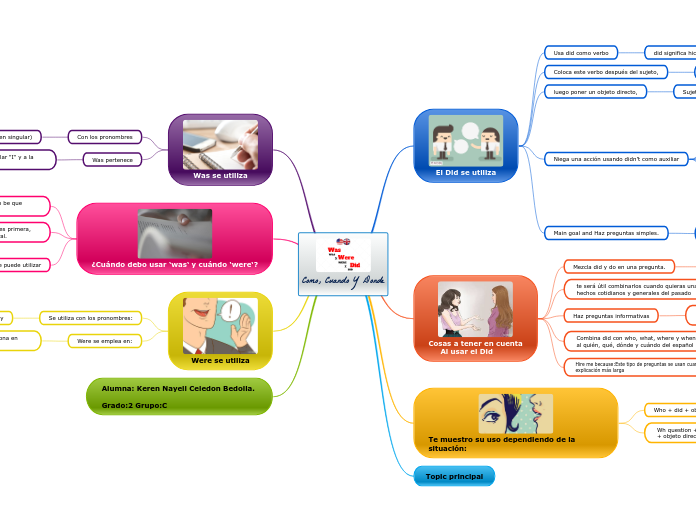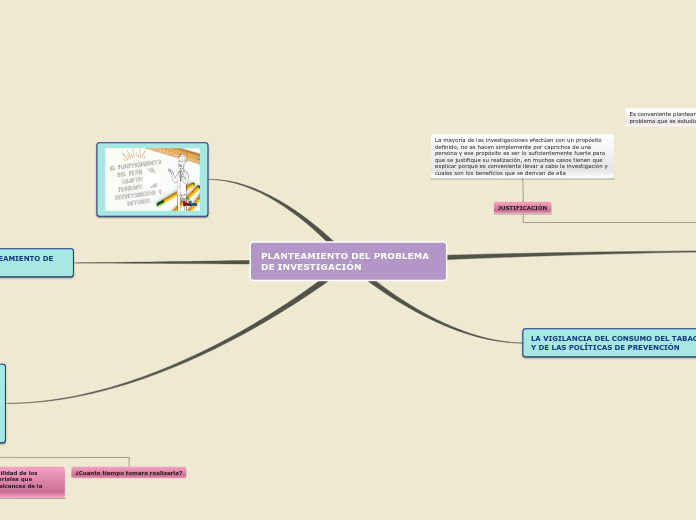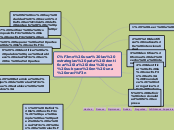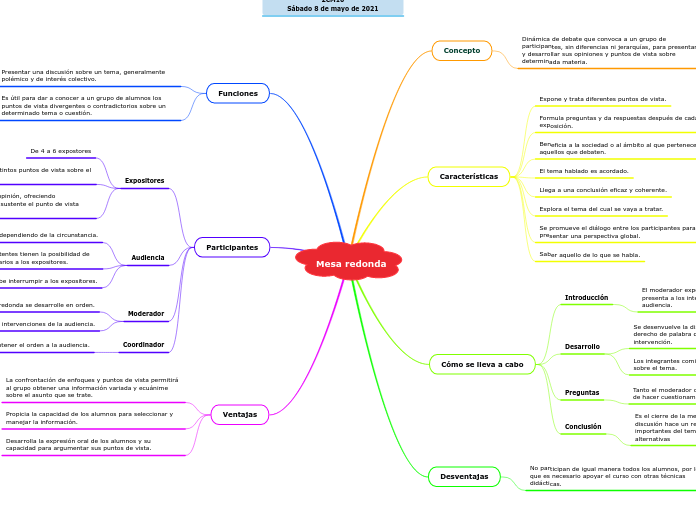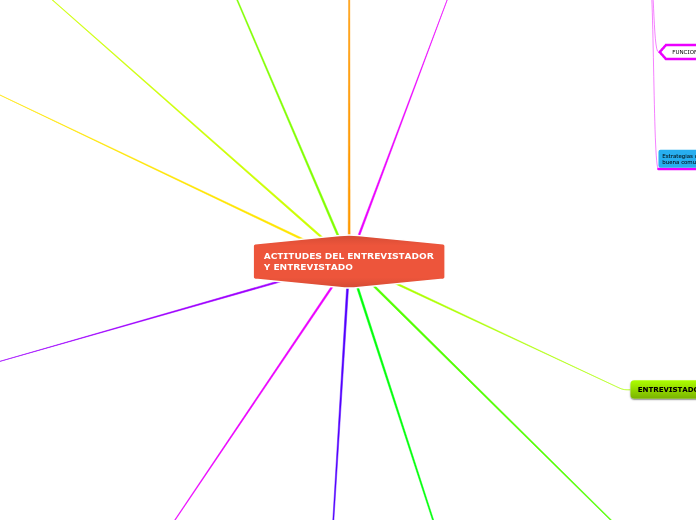Como, Cuando Y Donde
Type in the name of the company you are going to have an interview with.
Alumna: Keren Nayeli Celedon Bedolla.
Grado:2 Grupo:C
Were se utiliza
How ambitious are you?
Were se emplea en:
Where and how do you see yourself in 5 years time?
Type in the answers.
para los pronombres en primera "We" y tercera persona en plural "They".
Se utiliza con los pronombres:
What are your short-term goals ?
Type them in.
Con los pronombres: We/ You/ They
¿Cuándo debo usar ‘was‘ y cuándo ‘were‘?
Nota el were se puede utilizar
What experience have you got from your previous jobs? Make sure you specify all your previous work experience, part-time jobs, vacation jobs, voluntary work, and unpaid work experience that are relevant for the position you are applying for.
también para todas las personas del subjuntivo pasado: "If I were rich" = Si yo fuera rico, "If he were here" = Si él estuviera aquí (Sin embargo, cabe acotar que ésta forma no se utiliza mucho en el inglés conversacional)
Responsibilityhay que identificar si el pronombre es primera, segunda o tercera persona, y si es singular o plural.
Describe a typical work day in your previous/current position.
Para el pronombre ‘you’ utilizamos were, tanto si es singular (tú) o plural (ustedes).
Reason for Was y were son el pasado del verbo to be que significa ser o estar
Why will/did you leave your existing/last job?
su uso dependerá del pronombre que se esté utilizando
Was se utiliza
Do you fully understand what this position implies?
After you've made some research on the company, read the job description thoroughly, and try to fully understand what your responsibilities will be.
Was pertenece
What would you do on the first day?
What about the first week(s)? Fill in some of the actions that you are planning to take.
a los pronombres en primera persona del singular "I" y a la tercera persona del singular "He, She, It".
Con los pronombres
What will be your main tasks?
Type them in.
/ She / He / It. (Pronombres en singular)
Topic principal
Te muestro su uso dependiendo de la situación:
Wh question + verbo auxiliar did + sujeto + verbo en infinitivo + objeto directo.
How would you describe yourself?
Type in a short description.
Who + did + objeto directo + signo de interrogación.
What are your hobbies?
What do you like to do in your free time? What was the last film you saw or the last book you read? Think of the activities that relax you the most. Fill in several hobbies.
Hobby
Cosas a tener en cuenta
Al usar el Did
Are you qualified for this position?
Interviewers will want to know whether or not you are able to do the job.
Answer the questions from this section and see if you are the right person for this position.
Hire me because:Este tipo de preguntas se usan cuando buscas una explicación más larga
What is the most compelling reason you should be hired?
En algunos casos did será el verbo principal y en otros funcionará como auxiliar
Combina did con who, what, where y when, que corresponden al quién, qué, dónde y cuándo del español
What can you do for this job that other candidates can't? Why?
Differentiating aptitude
Haz preguntas informativas
Which qualities were easily observed by your colleagues and/or your former/existing boss?
Type them in.
En el idioma inglés se les conoce como las wh questions o preguntas wh
te será útil combinarlos cuando quieras una respuesta sobre hechos cotidianos y generales del pasado
What are your weaknesses?
Examples:
stubbornoverly critical, can't accept authoritytoo demandingtoo talkativetoo quiettoo sensitivelacking assertivenesslacking social tact
Ejemplo de la oración
Verbo auxiliar + sujeto + do + objeto directo + signo de interrogación.
How do you work on overcoming these weaknesses?
Type in a short explanation.
Mezcla did y do en una pregunta.
What strengths qualify you for this job?
Example:
ambitiousgood communicatorfocuseddeterminedadaptablecuriousoptimisthard workerhonestpoliteco-operativeself motivatedenthusiasticgood leaderstrategic thinkerquick learnerflexiblegood problem solver
Usa did como auxiliar y do como verbo principal
ambos significan lo mismo, pero tienen funciones distintas
Why do you think you have this strength?
Give an example.
El Did se utiliza
Research the company
You should find and learn as much as you can about the company where you are having an interview.
The interviewer will want to see what you know about them and why you chose the company.
Doing your homework will show that you are really interested.
Main goal and Haz preguntas simples.
What do you know about the company's main goal and vision?
Type in the answer.
Inicia la pregunta con el verbo auxiliar did o didn’t, seguido del sujeto a quien te diriges y el verbo escrito en infinitivo
Ejemplo de la estructura de la oración:
Did o didn’t + sujeto + verbo en infinitivo + objeto directo + signo de interrogación.
Niega una acción usando didn’t como auxiliar
cuando hables tendrás que usar un tono más autoritario
What do you know about the history of the company?
Type in a short description.
La oración debe tener los siguientes elementos:
Sujeto + did + verbo en infinitivo + objeto directo.
Haz énfasis en alguna situación.
What kind of innovations does this company have?
Type in several examples.
Su estructura básica es la siguiente:
What is the company's turnover for last year?
Pronombre o sustantivo + Didn’t + verbo en presente simple + objeto directo.
Deben acompañar a cualquier verbo que deseen negar
What products does this company have?
Type in several examples.
y cuya acción apunte al pasado simple.
Did not o la forma abreviada didn’t
What is the size of this company?
luego poner un objeto directo,
What can you do for this company that someone else can't?
Type in several unique traits that will turn you into the perfect candidate for the position.
Sujeto + verbo did + objeto directo
Coloca este verbo después del sujeto,
What do you know about the company?
Type a short description of the company's background.
puede ser un pronombre personal o un sustantivo
Usa did como verbo
Why do you want to work for this company?
Think of what you can do for them, not of what they can do for you.
did significa hice
